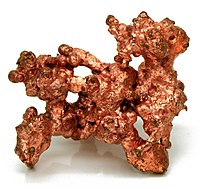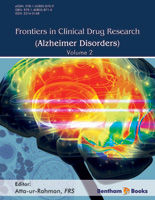
Clinical validity of second-generation tau PET tracers as biomarkers for Alzheimer’s disease in the context of a structured 5-phase development framework
Sign Up to like & getrecommendations! Published in 2021 at "European Journal of Nuclear Medicine and Molecular Imaging"
DOI: 10.1007/s00259-020-05156-4
Abstract: In 2017, the Geneva Alzheimer’s disease (AD) strategic biomarker roadmap initiative proposed a framework of the systematic validation AD biomarkers to harmonize and accelerate their development and implementation in clinical practice. Here, we use this… read more here.
Keywords: tau pet; phase; pet tracers; validity ... See more keywords

Application of PET Tracers in Molecular Imaging for Breast Cancer
Sign Up to like & getrecommendations! Published in 2020 at "Current Oncology Reports"
DOI: 10.1007/s11912-020-00940-9
Abstract: Purpose of Review Molecular imaging with positron emission tomography (PET) is a powerful tool to visualize breast cancer characteristics. Nonetheless, implementation of PET imaging into cancer care is challenging, and essential steps have been outlined… read more here.
Keywords: cancer; pet tracers; molecular imaging; breast cancer ... See more keywords

Novel PET tracers: added value for endocrine disorders
Sign Up to like & getrecommendations! Published in 2019 at "Endocrine"
DOI: 10.1007/s12020-019-01895-z
Abstract: SummaryNuclear medicine has been implicated in the diagnosis and treatment of endocrine disorders for several decades. With recent development of PET tracers, functional imaging now plays a major role in endocrine tumors enabling with high… read more here.
Keywords: pet tracers; endocrine disorders; added value; tracers added ... See more keywords

Pet tracers for vulnerable plaque imaging
Sign Up to like & getrecommendations! Published in 2020 at "Annals of Nuclear Medicine"
DOI: 10.1007/s12149-020-01458-7
Abstract: Most of the acute ischemic events, such as acute coronary syndromes and stroke, are attributed to vulnerable plaques. These lesions have common histological and pathophysiological features, including inflammatory cell infiltration, neo-angiogenesis, remodelling, haemorrhage predisposition, thin… read more here.
Keywords: pet tracers; pet; atherosclerotic plaques; vulnerable plaques ... See more keywords

Non-18F-Fluorodeoxyglucos PET Tracers in Pediatric Disease.
Sign Up to like & getrecommendations! Published in 2020 at "PET clinics"
DOI: 10.1016/j.cpet.2020.03.013
Abstract: 18F-fluorodeoxyglucose (FDG) PET/computed tomography (CT) is an efficient method of diagnosing, staging, treatment evaluation, and recurrence monitoring of pediatric diseases. FDG has some limitations, but other PET/CT tracers have shown promising roles in evaluation of… read more here.
Keywords: pet tracers; pediatric disease; non 18f; 18f fluorodeoxyglucos ... See more keywords

A Critical Review of PET Tracers Used for Brain Tumor Imaging.
Sign Up to like & getrecommendations! Published in 2021 at "PET clinics"
DOI: 10.1016/j.cpet.2020.12.004
Abstract: The brain is a common site for metastases as well as primary tumors. Although evaluation of these malignancies with contrast-enhanced MR imaging defines current clinical practice, 18F-fluorodeoxyglucose (FDG)-PET has shown considerable utility in this area.… read more here.
Keywords: pet tracers; tracers used; review pet; critical review ... See more keywords

New Long-Acting [89Zr]Zr-DFO GLP-1 PET Tracers with Increased Molar Activity and Reduced Kidney Accumulation.
Sign Up to like & getrecommendations! Published in 2023 at "Journal of medicinal chemistry"
DOI: 10.1021/acs.jmedchem.2c02073
Abstract: Positron emission tomography (PET) imaging is used in drug development to noninvasively measure biodistribution and receptor occupancy. Ideally, PET tracers retain target binding and biodistribution properties of the investigated drug. Previously, we developed a zirconium-89… read more here.
Keywords: increased molar; kidney; pet tracers; molar activity ... See more keywords

The 18-kDa Translocator Protein PET Tracers as a Diagnostic Marker for Neuroinflammation: Development and Current Standing
Sign Up to like & getrecommendations! Published in 2022 at "ACS Omega"
DOI: 10.1021/acsomega.2c00588
Abstract: Translocator protein (TSPO, 18 kDa) is an evolutionary, well-preserved, and tryptophan-rich 169-amino-acid protein which localizes on the contact sites between the outer and inner mitochondrial membranes of steroid-synthesizing cells. This mitochondrial protein is implicated in… read more here.
Keywords: neuroinflammation; translocator protein; kda; pet tracers ... See more keywords

Tau PET imaging: present and future directions
Sign Up to like & getrecommendations! Published in 2017 at "Molecular Neurodegeneration"
DOI: 10.1186/s13024-017-0162-3
Abstract: Abnormal aggregation of tau in the brain is a major contributing factor in various neurodegenerative diseases. The role of tau phosphorylation in the pathophysiology of tauopathies remains unclear. Consequently, it is important to be able… read more here.
Keywords: pet tracers; tau pet; tau; pet imaging ... See more keywords

Design and synthesis of aryl-piperidine derivatives as potent and selective PET tracers for cholesterol 24-hydroxylase (CH24H).
Sign Up to like & getrecommendations! Published in 2022 at "European journal of medicinal chemistry"
DOI: 10.2139/ssrn.4137501
Abstract: Cholesterol 24-hydroxylase (CH24H, CYP46A1) is a cytochrome P450 family enzyme that maintains the homeostasis of brain cholesterol. Soticlestat, a potent and selective CH24H inhibitor, is in development as a therapeutic agent for Dravet syndrome and… read more here.
Keywords: cholesterol hydroxylase; ch24h; pet; pet tracers ... See more keywords

Non-Amyloid PET Imaging Biomarkers for Neurodegeneration: Focus on Tau, Alpha-Synuclein and Neuroinflammation.
Sign Up to like & getrecommendations! Published in 2017 at "Current Alzheimer research"
DOI: 10.2174/1567205013666160620111408
Abstract: Clinical classifications of neurodegenerative disorders are often based on neuropathology. The term "proteinopathies" includes disorders that have in common abnormal proteins as a hallmark, e.g. amyloidoses, tauopathies, synucleopathies, ubiquitinopathies. Different proteins can also co-exist in… read more here.
Keywords: pet tracers; tau alpha; pet; non amyloid ... See more keywords